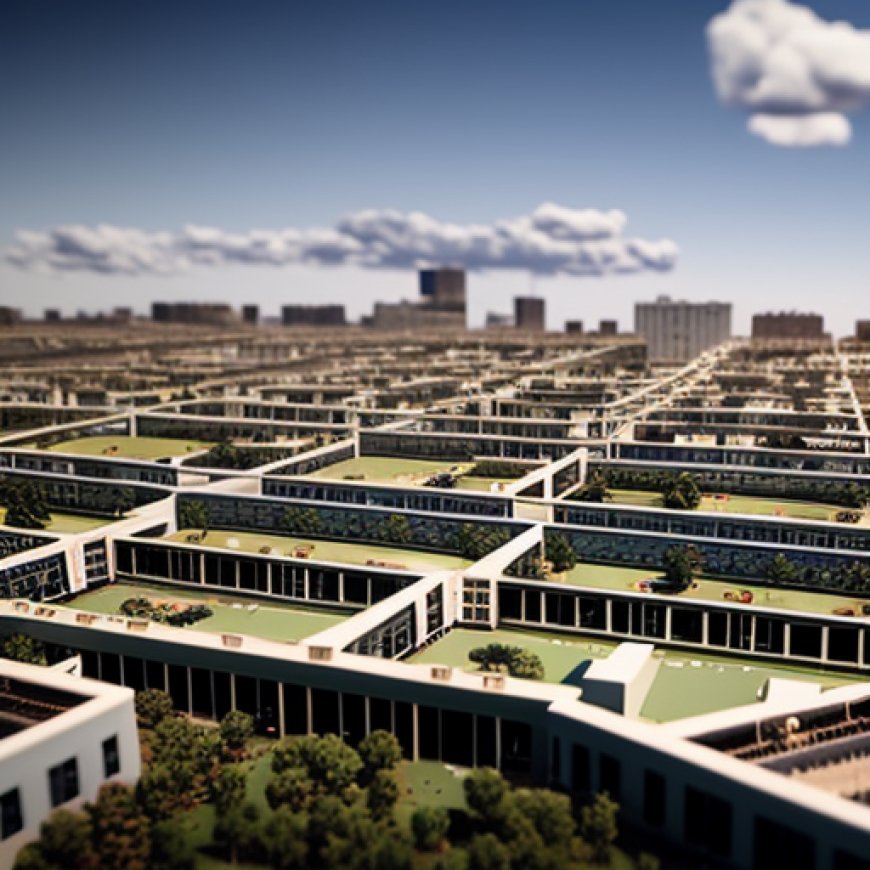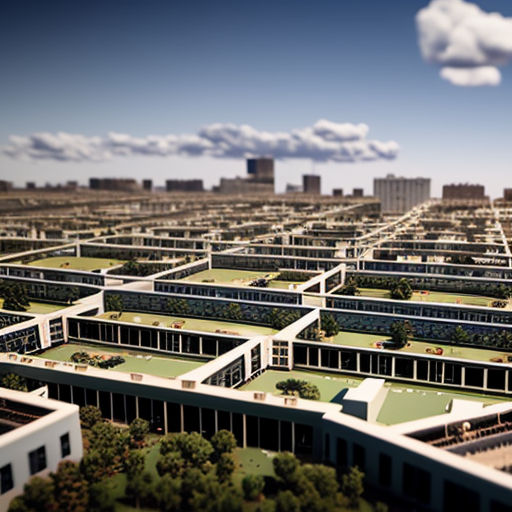Nonprofit plans housing development for formerly incarcerated
Nonprofit plans housing development for formerly incarcerated Yahoo! Voices


A Charlotte Nonprofit Plans Housing Development for Formerly Incarcerated Individuals

The Freedom Fighting Missionaries, a Charlotte nonprofit, is embarking on a housing development project specifically designed for individuals who were previously incarcerated. As the first Black-founded re-entry organization in Charlotte to own land and create housing for public use, this initiative aligns with the Sustainable Development Goals (SDGs) set by the United Nations.
Funding and Supportive Housing
In 2023, the nonprofit received $2 million in funding from the Charlotte City Council and an additional $2 million from Mecklenburg County Commissioners. This financial support will be utilized to establish supportive housing for individuals reintegrating into society after incarceration and those affected by the justice system.
Charlotte resident Tekoria Raiford expressed the challenges faced by individuals seeking housing after being released from incarceration. She emphasized the difficulty of finding safe and suitable accommodation in such circumstances.
North Carolina Affordable Housing Resources
Raiford herself experienced these struggles but found assistance through the Freedom Fighting Missionaries, enabling her to secure housing for herself and her children. She expressed gratitude for the organization’s understanding of her circumstances and their willingness to help.
Impact and Expansion
Since its establishment in 2020, the Freedom Fighting Missionaries has already assisted hundreds of individuals. Now, with the recent acquisition of 1.8 acres in the University City area, the organization plans to further expand its reach. The proposed development includes a 24-unit complex with two and three-bedroom apartments, catering to formerly incarcerated individuals and their families. These units will also provide access to wrap-around services, emphasizing the importance of holistic support.
Founder Robinson, who himself served 10 years in federal prison, understands the challenges faced by those re-entering society. He shared his personal experience of being repeatedly denied housing applications and highlighted the significance of representing and advocating for the individuals they serve. Robinson sees this project as a testament to the American Dream, demonstrating that no obstacle is insurmountable in America.
Raiford believes that this housing development will be life-changing for many individuals, stating that it will make a significant positive impact.
Funding and Construction
The government funding received by the Freedom Fighting Missionaries covers the land acquisition and predevelopment stages of the project. To proceed with construction, Robinson hopes to secure matching funds from the private sector. The groundbreaking ceremony is scheduled for summer 2024.
(WATCH: City council to vote to move $1 million to Ballantyne affordable housing project)
SDGs, Targets, and Indicators
| SDGs | Targets | Indicators |
|---|---|---|
| SDG 11: Sustainable Cities and Communities | Target 11.1: By 2030, ensure access for all to adequate, safe, and affordable housing and basic services and upgrade slums | Indicator 11.1.1: Proportion of urban population living in slums, informal settlements, or inadequate housing |
| SDG 16: Peace, Justice, and Strong Institutions | Target 16.3: Promote the rule of law at the national and international levels and ensure equal access to justice for all | Indicator 16.3.2: Unsentenced detainees as a proportion of overall prison population |
1. Which SDGs are addressed or connected to the issues highlighted in the article?
- SDG 11: Sustainable Cities and Communities
- SDG 16: Peace, Justice, and Strong Institutions
The article discusses a housing development project by the nonprofit Freedom Fighting Missionaries to provide housing for individuals who were previously incarcerated. This aligns with SDG 11, which aims to ensure access for all to adequate, safe, and affordable housing. Additionally, the article mentions the struggles faced by individuals re-entering society after incarceration, highlighting the need for equal access to justice and the promotion of the rule of law, which are key elements of SDG 16.
2. What specific targets under those SDGs can be identified based on the article’s content?
- Target 11.1: By 2030, ensure access for all to adequate, safe, and affordable housing and basic services and upgrade slums
- Target 16.3: Promote the rule of law at the national and international levels and ensure equal access to justice for all
The housing development project by Freedom Fighting Missionaries directly contributes to Target 11.1 of SDG 11 by providing safe and affordable housing for individuals who were previously incarcerated. It also indirectly supports Target 16.3 of SDG 16 by promoting equal access to justice for this vulnerable population.
3. Are there any indicators mentioned or implied in the article that can be used to measure progress towards the identified targets?
- Indicator 11.1.1: Proportion of urban population living in slums, informal settlements, or inadequate housing
- Indicator 16.3.2: Unsentenced detainees as a proportion of overall prison population
The article does not explicitly mention these indicators, but they can be used to measure progress towards the identified targets. Indicator 11.1.1 can assess the improvement in housing conditions for individuals previously incarcerated, while Indicator 16.3.2 can measure the proportion of unsentenced detainees within the overall prison population, reflecting progress in ensuring equal access to justice.
4. SDGs, Targets, and Indicators
| SDGs | Targets | Indicators |
|---|---|---|
| SDG 11: Sustainable Cities and Communities | Target 11.1: By 2030, ensure access for all to adequate, safe, and affordable housing and basic services and upgrade slums | Indicator 11.1.1: Proportion of urban population living in slums, informal settlements, or inadequate housing |
| SDG 16: Peace, Justice, and Strong Institutions | Target 16.3: Promote the rule of law at the national and international levels and ensure equal access to justice for all | Indicator 16.3.2: Unsentenced detainees as a proportion of overall prison population |
Behold! This splendid article springs forth from the wellspring of knowledge, shaped by a wondrous proprietary AI technology that delved into a vast ocean of data, illuminating the path towards the Sustainable Development Goals. Remember that all rights are reserved by SDG Investors LLC, empowering us to champion progress together.
Source: yahoo.com

Join us, as fellow seekers of change, on a transformative journey at https://sdgtalks.ai/welcome, where you can become a member and actively contribute to shaping a brighter future.







